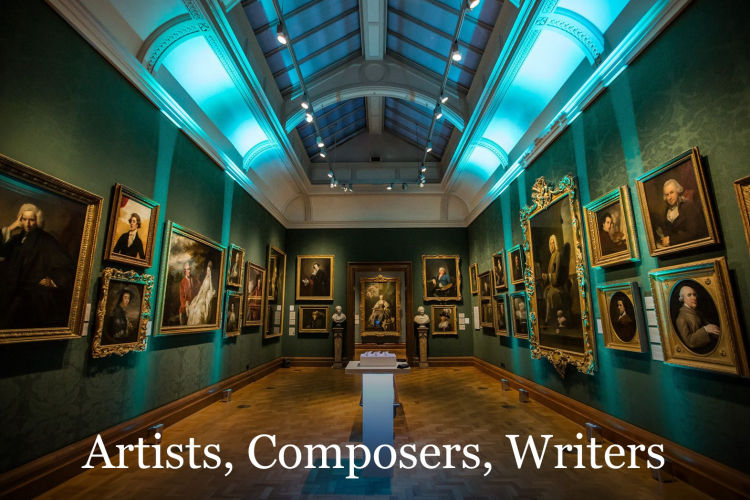5. Memory.
As they get older, people seem to dwell on their early memories; this is as true of artists as for the rest of us.
What is different is the nature of those memories, and how they are used in different media. So we have a poet and
a couple of filmmakers going back to their childhoods, an angry but unusually innovative artist dealing with family
trauma, a displaced Greek returning to the cultural memory of his people, two composers in old age returning to
works written decades earlier, and a French flâneur who made memory—and his entire life—the subject of seven
mesmerizing novels. rb.
This is another class featuring poetry; I advise reading the
texts in advance. rb.
All the shorter clips played in class are currently available on YouTube, in one form or another. The three movies are
more of a problem, however. For Amarcord, we have the complete film in Italian only, plus an excellent video
essay and a trailer. For Time Regained, there is a trailer and a longer selection of excerpts—and also the
complete movie, spoken incongrously in Italian! Kenneth Branagh's Belfast is just too new; all I can offer
are two slightly different trailers, and his interview with Stephen Colbert.
I also include a link to the excellent hour-long documentary Proust: a Writer's Life. Had I not had the Ruiz film
to turn to, I would have made much more extensive use of this for its well-produced dramatizations, although the
talking heads do stretch the patience rather. rb.
* Asterisked items are different from those played in class.
| |
|
|
|
|
|
| IMAGES |
The thumbnails below cover the slides shown in class. Click the
thumbnail to see a larger image.
Click on the right or left of the larger picture to go forward or back,
or × to close. |
 | |
 | |
 | |
 | |
 | |
 | |
 | |
 | |
 | |
 | |
 | |
 | |
Here are brief bios of the artists and poets whose works come into the class, listed in chronological order of birth.
You can access all biographies via the BIOS link on the syllabus page.
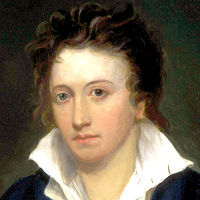 |
Percy Bysshe Shelley, 1792–1822. English poet.
With his friend Byron, Shelley was the outstanding English Romantic poet of the generation after Wordsworth and Coleridge. Politically engaged, and intellectually acute, he was an avowed atheist, a stance that got him expelled from Oxford, and kept him out of England for much of his short career. He drowned in a boating accident off Livorno at the age of 29. His second wife, Mary Godwin Shelley, was the author of Frankenstein.
|
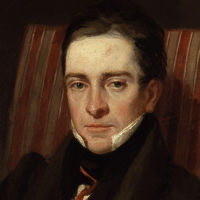 |
Thomas Hood, 1799–1845. English poet.
Called "the finest English poet between the generations of Shelley and Tennyson," Hood wrote both humorous and serious verse for various periodicals and a magazine that he himself published. For most of the last five years of his short life, he was confined to bed through ill health.
|
 |
César Franck, 1822–90. Belgian composer.
His outsanding ability as an improviser on the organ attracted much attention, but his other works met with little interest until a concert organized by his pupils spurred him to new invention in the last few years of his life.
|
 |
Constantine Peter Cavafy, 1863–1933. Alexandrian Greek poet.
EM Forster described Cavafy as "a Greek gentleman in a straw hat, standing absolutely motionless at a slight angle to the universe." His translator Maria Margaronis wrote that his work "holds the historical and the erotic in a single embrace." Living all his life in Alexandria, he mined the past for inspiration, but refused to publish his work formally; most of it appeared only after his death.
|
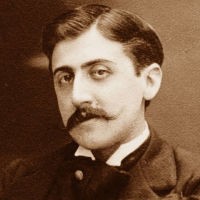 |
Marcel Proust, 1871–1922. French novelist.
Proust came from a well-to-do family, and spent much of his youth in society, experiences that served him in writing his monumental À la recherche du temps perdu (In Search of Lost Time, originally translated as Remembrance of Things Past) which he began in 1913, one of the greatest celebrations of the power of memory in literature. He suffered from poor health his entire life, and died at the age of 51.
|
 |
Frank Bridge, 1879–1941. English composer.
Making his reputation with somewhat pastoral chamber music and songs, Bridge developed a more cosmopolitan style in the 1920s, aligning him with the developments of Schönberg and others. He is also important also for encouraging the talent of Benjamin Britten, who studied with him in his teens.
|
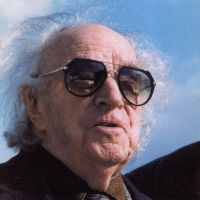 |
Joaquín Rodrigo, 1901–99. Spanish composer.
Rendered blind by illness at the age of three, Rodrigo nonetheless rose to become the most celebrated Spanish composer of his time, especially in works for guitar—an instrument he did not himself play—such as the Concierto de Aranjuez (1939) and Fantasia para un gentilhombre (1955).
|
 |
Elliott Carter, 1908–2012. American composer.
More than any other American composer, Carter developed the techniques of Schönberg and Webern to new heights, combining rigor and invention. The Concise Oxford Dictionary of Music writes "his music is uncompromising and challenging, its harsh brilliance enhanced by compelling intellectual qualities."
|
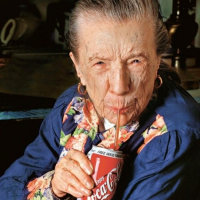 |
Louise Bourgeois, 1911–2010. French-American sculptor.
Bourgeois was born and trained in France, but moved to New York in 1938. It was only there that she turned to sculpture, the art form in which she is best known, working in a variety of media and every scale from intimate the monumental. Although her work is abstract, it often has human references.
|
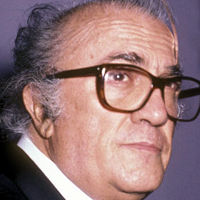 |
Federico Fellini, 1920–93. Italian film director.
After a brief stint as a law student to please his parents, Fellini broke out as a cartoonist, writer, and later filmmaker. Beginning in the neo-realist style with works like La strada (1954), he gradually moved towards the more fantastic treatment that defined his style, in films like La dolce vita (1960), 8½ (1963), and Amarcord (1973). He is commonly listed among the greatest directors ever.
|
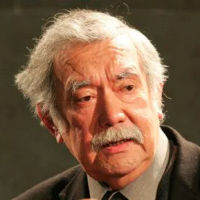 |
Raúl Ruiz, 1921–2011. Chilean film director.
Starting as a prolific playwright, Ruiz made his first films in Chile in 1968, but fled to Paris in 1973 to escape the Pinochet regime. There, he made a reputation for experimental low-budget films, before gradually attracting international producers and stars in works like his Proust realization Time Regained (1999), which perfectly matched literary narrative to his dreamlike style.
|
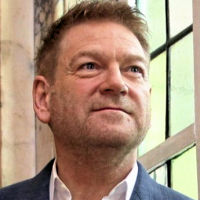 |
Kenneth Branagh, 1960– . British actor and director.
Branagh was born in Belfast, but moved to England with his family at the age of 9 to escape the Troubles. He made a triumphant debut with the Royal Shakespere Company as Henry V, which he used as the basis for his own series of Shakespeare films, in which he both starred and directed, later branching out to include roles from Frankenstein to Hercule Poirot. He does not appear in his 2021 autobiographical film Belfast, however, since it features his experiences as a young boy.
|












